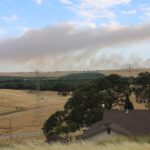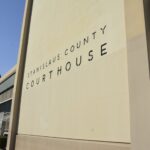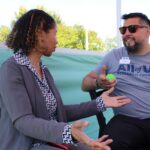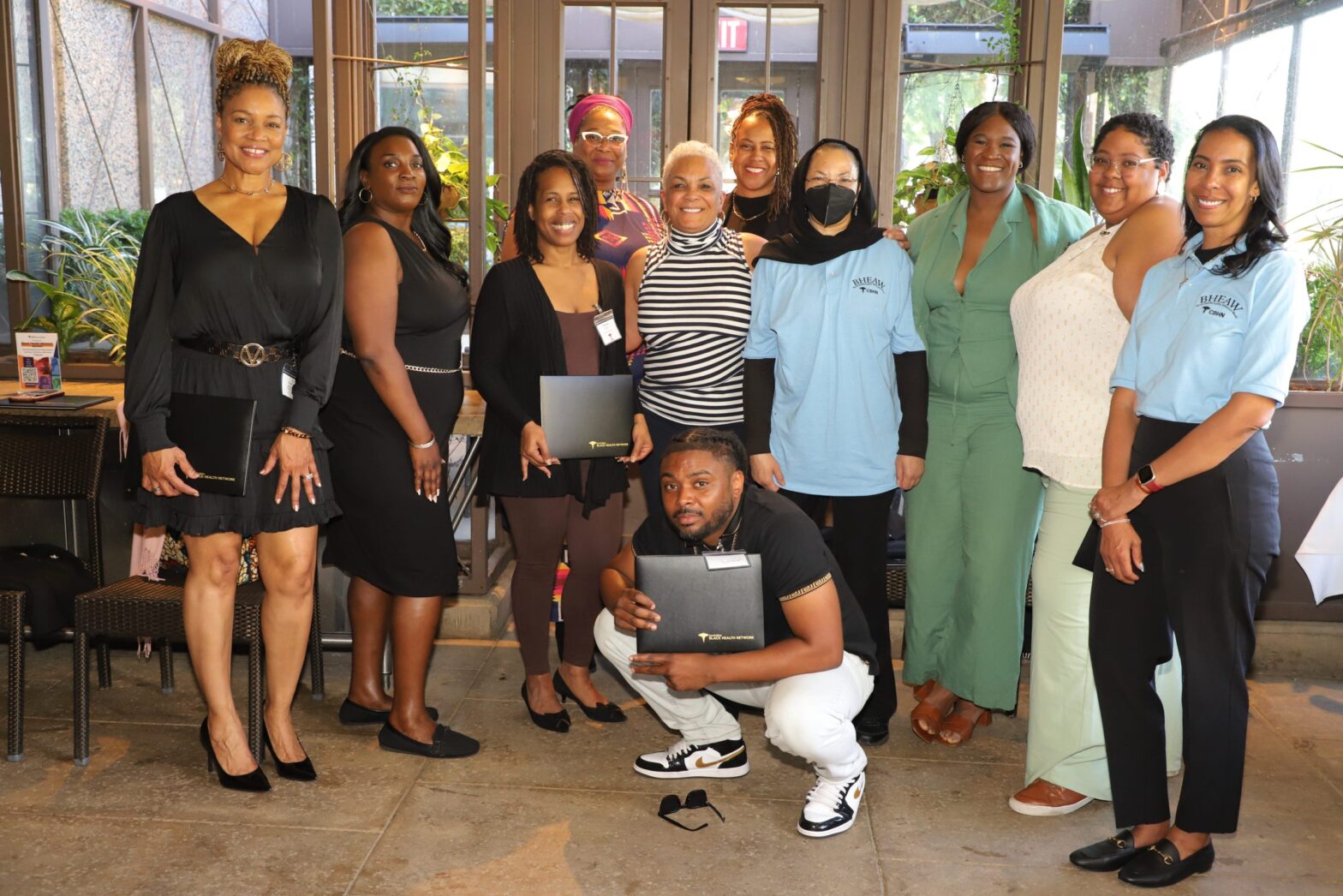Around the country, Juneteenth is a day to commemorate the past, but this year’s celebration in Stockton is also aimed at the future.
Organizers of this Saturday’s annual Juneteenth gathering have curated the event with a heavy focus on Black health equity.
“We’re utilizing this space in this gathering to address health issues,” said Aaron Chapman, a Stockton-based poet and activist. “Whether it be health in your body, in your mental health, in your pockets, in your finances, in your soul.”
Saturday’s event at the Weber Point Events Center will feature on-site health screenings, youth mental health forums and sign-ups for summer kids’ programs. Attendees will also find resources related to diabetes, cancer, emotional wellbeing and elder care.
None of this is happening by accident.
Chapman and Danelle “D” Shelton, president of the San Joaquin Juneteenth Foundation, are hoping the event will help create a coalition to fight for better health outcomes in their community. They’ve partnered with statewide health experts to broaden their advocacy skills and support community organizing.
“So that was basically our approach,” Shelton said. “Picking their brains and trying to figure out what we can do to make Juneteenth be a more impactful and effective celebration.”
Chapman said the other key elements of this year’s event will be music and art, which he considers critical to uniting people around health equity. For his part, Chapman writes poetry to tell the stories of his community.
“Advocacy work in a nutshell, is doing what it takes to bring people together to have the resources to make life better,” he said. “I’m never not advocating for something, even when I’m just playing around on Facebook. Because a lot of times, the things that I share is not just what’s happening in Stockton, but it’s happening across America.”
Juneteenth, which commemorates the end of slavery in the U.S., has been celebrated in some communities for generations. But much of the country only became aware of its significance during the global uprisings that followed the murder of George Floyd in 2020. The San Joaquin Juneteenth Foundation was started in 1976, America’s bicentennial. In 2021, Juneteenth became a federal holiday.
Two tiers of advocacy for Black health equity
In the lead up to this year’s celebration in Stockton, Chapman and Shelton participated in the California Black Health Network’s second annual Health Equity Advocacy Training, a series of workshops aimed at helping community advocates affect state and local health policy.
“There’s two tiers of advocacy,” Chapman said, “groundwork advocacy and then you have your political advocacy. What we went through was political advocacy training.”
Part of that was thinking about ways to engage funding sources for the Juneteenth Foundation.
“And how do we get them at the state level, right?” Shelton said. “Because they’re dealing with millions, as opposed to, you know, we get $1,000 here and there.”
In May, Chapman and Shelton met with lawmakers in Sacramento.
“This year this week we took our second cohort to Sacramento to put all their learning into action and with their state representative, both on the Senate and the Assembly side,” said Rhonda Smith, executive director of the California Black Health Network. “The anticipation and hope is that this was just the beginning of starting to cultivate a relationship with their state representatives, both in Sacramento and at the district offices in their home cities. This is meant to be part of an ongoing process.”
Smith began working to improve health equity in California more than 15 years ago, when a personal health issue exposed her firsthand to disparities in health care.
“It started because of my breast cancer diagnosis back in 2008,” she said…. “I grew up in Virginia and I grew up in a town where all my health care providers look like me.”
Smith was finishing her treatment right at the moment when a faltering housing market was tanking the U.S. economy. She was a self-employed consultant and had to figure out what to do next.
“I refocused my consulting practice and started doing health and wellness education,” she said. “I landed my first project here as the statewide director for a breast cancer disparities initiative focused on African American women here in the state.”
Her second project focused on Asian Pacific Islander and Latino communities in Orange County.
“We don’t discriminate when it comes to health equity,” she said. “Obviously, our primary audience is the Black community here in California, but we know that in order to close the gap and health disparities for our community we have to work in concert with other health equity peer organizations.”
It’s an approach that jibes with a place like Stockton, one of the most diverse cities in the country.
“It’s about being fair and just to an individual no matter what that person looks like, how much money they make, what country they’re from, how they self identify, or who they love,” she said. “Health equity really ignores all that, and people get what they need.”
Vivienne Aguilar is the health equity reporter for the Central Valley Journalism Collaborative in collaboration with the California Health Care Foundation (CHCF).










